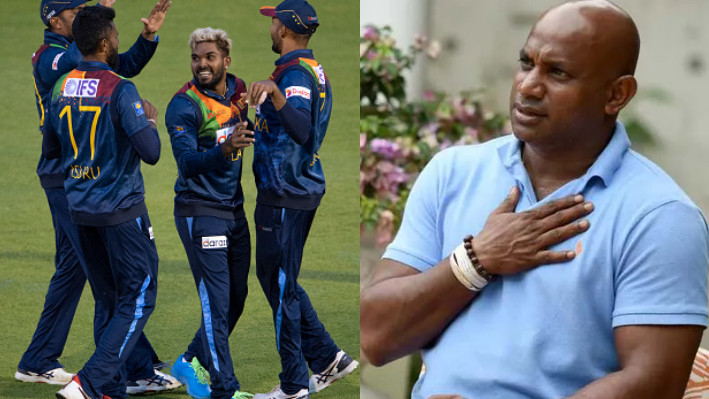The dust has settled on the Asia Cup 2025 Super Fours, and for Sri Lanka, it leaves behind a bittersweet taste. A campaign that began with promise in the group stages, where they swept aside opponents with an air of confident prowess, ultimately concluded without a single victory in the crunch Super Four encounters. Yet, amidst the defeats and the agonizingly close finishes, Head Coach Sanath Jayasuriya offers a perspective that balances disappointment with a keen eye on burgeoning potential. It`s a tale of resilience, missed opportunities, and the ever-present challenge of turning `almost` into `achieved`.
Déjà Vu in Dubai: The Indian Enigma
The match against India in Dubai became a focal point of this narrative. It was a contest that had Sri Lankan fans on the edge of their seats, daring to dream, only to witness a familiar script unfold. Needing just 12 runs from the final over with centurion Pathum Nissanka at the crease and six wickets in hand, victory seemed within grasp. However, cricket, in its infinite wisdom, often serves up a cruel twist. Nissanka`s dismissal and a subsequent misfield by India`s Kuldeep Yadav that could have yielded a third run for Sri Lanka`s captain Dasun Shanaka, led to a repeat of an all-too-recent heartbreak: a Super Over.
The irony, perhaps, is not lost on anyone following Sri Lankan cricket. This wasn`t just a Super Over; it was a recurring nightmare. Memories of July 2024, when India, against all odds, snatched a victory from Sri Lanka`s grasp after needing only nine runs from two overs with six wickets remaining, are still fresh. On that occasion, Rinku Singh and Suryakumar Yadav defied logic. This time, it was another dramatic finish, cemented by Shanaka`s overzealous dive for a second run, seemingly unaware of a potential third. Jayasuriya, however, was quick to dispel notions of a “mental block” against the Indian side, focusing instead on the team`s inherent strength.
Nissanka`s Knock: A Beacon of Brilliance
Amidst the Super Four struggles, one performance shone exceptionally bright: Pathum Nissanka`s magnificent century against India. Scoring 107 off just 58 balls, Nissanka demonstrated not just skill but an indomitable spirit. Jayasuriya revealed that the opener had been battling groin and hamstring niggles since the group stage, making his fiery knock an even more impressive testament to his commitment.
Nissanka`s journey from a Test specialist to a formidable white-ball player is a story in itself, one Jayasuriya has clearly fostered. The coach`s emphasis on freedom and a leeway for mistakes seems to have paid dividends. Alongside Kusal Perera, who contributed a brisk 58 off 32 balls, their 127-run partnership was a masterclass in aggressive yet calculated stroke play, momentarily turning a daunting chase of 203 into a plausible pursuit. “Their partnership was the key,” Jayasuriya affirmed, acknowledging the momentum shift they created.
The Crucial Art of Adaptation
While praising individual brilliance and denying a collective psychological barrier, Jayasuriya didn`t shy away from highlighting the team`s areas for improvement. A significant challenge, he noted, was the failure to adapt quickly to changing conditions. “In T20 cricket, assessing conditions quickly is everything,” he emphasized. The shift in pitch dynamics from the group stage in Abu Dhabi to the Super Four games proved problematic, costing them crucial momentum.
The Bangladesh match in the Super Four was singled out as a particular disappointment, where a score of 168 was considered defendable, yet the bowling unit faltered. Against Pakistan, a similar lack of swift assessment led to tactical missteps. These are technical nuances that differentiate good teams from great ones – the ability to read the game`s evolving landscape and adjust strategies on the fly.
Looking Ahead: The T20 World Cup Horizon
Despite the winless run in the Super Fours, Jayasuriya remains “fairly satisfied” with the team`s underlying quality and believes in its future. The Asia Cup, in this context, becomes a vital learning ground rather than a definitive failure. The lessons learned from the Super Over debacles, the importance of injury management, and the critical need for tactical flexibility are invaluable as Sri Lanka sets its sights on the upcoming T20 World Cup in February.
The path ahead involves rigorous analysis of these performances, fine-tuning strategies, and instilling the consistency that Jayasuriya champions. Sri Lanka`s journey in the Asia Cup 2025 was a poignant reminder of cricket`s unpredictable nature, where individual heroics can light up the stage, but collective execution ultimately dictates destiny. The potential is undeniable; the challenge lies in unlocking it consistently when it matters most.








